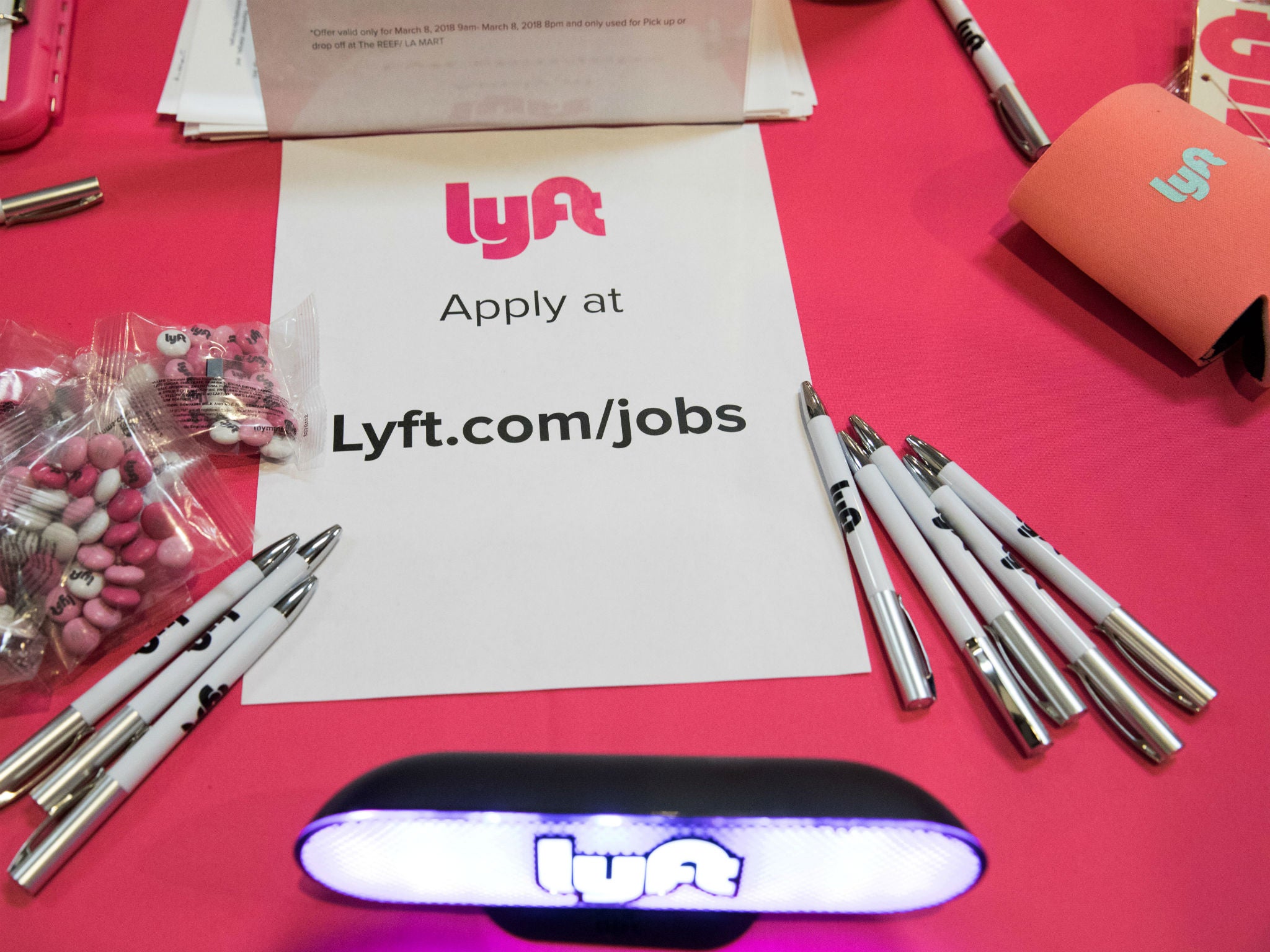Many Uber and Lyft drivers now rely on the work as their primary income source, report finds
Companies have long touted the flexibility of jobs that allow drivers to work as much or as little as they want

Your support helps us to tell the story
From reproductive rights to climate change to Big Tech, The Independent is on the ground when the story is developing. Whether it's investigating the financials of Elon Musk's pro-Trump PAC or producing our latest documentary, 'The A Word', which shines a light on the American women fighting for reproductive rights, we know how important it is to parse out the facts from the messaging.
At such a critical moment in US history, we need reporters on the ground. Your donation allows us to keep sending journalists to speak to both sides of the story.
The Independent is trusted by Americans across the entire political spectrum. And unlike many other quality news outlets, we choose not to lock Americans out of our reporting and analysis with paywalls. We believe quality journalism should be available to everyone, paid for by those who can afford it.
Your support makes all the difference.A substantial number of Uber and Lyft drivers rely on the work for their primary income source, a new report found, undercutting the argument that such jobs are largely supplemental or part-time.
The two ride-for-hire companies are among the best-recognised pioneers of the burgeoning gig economy, in which workers without fixed hours can take on as much or as little labour as they choose - often via an app. Uber and Lyft tout that flexibility as central to their appeal, saying it allows drivers to earn extra income when they wish.
But growing evidence suggests that driving has become a full-time job for many workers. A new survey of Los Angeles-area drivers from the University of California, Los Angeles (UCLA) Labor Center lends more weight to that argument.
Around half of the drivers surveyed said driving was their only job, the report found, and two-thirds said it was their main income source. Almost half were working more than 35 hours a week and more than half were working at least five days a week. The average driver had been on the job for more than a year.
Baked-in costs like vehicle upkeep also placed a financial burden on drivers, the report found, with neatly half saying they struggled to pay for expenses like insurance and gas. Some took on debt or found additional work to cover those costs.
The rise of Uber and Lyft has both reshaped the way people get around - the report noted that more people are expected to use ride-for-hire services this year than take buses - and fueled a growing debate about the nature of such work.
Since the companies classify drivers as independent contractors, rather than as employees, drivers are not covered by wage mandates or guaranteed benefits.
A representatives of Uber did not immediately have a comment. Lyft said its own research paints an entirely different picture, with the company's Los Angeles general manager Allen Narcisse saying in a statement that the majority of drivers nationwide sign up “to supplement their income and as a flexible earning opportunity”.
“In Los Angeles specifically, 93% drive fewer than 20 hours per week and 99% schedule driving around jobs, classes, childcare, and other activities”, Mr Narcisse said.
While the UCLA report found that respondents were split on whether they wanted to become full-time employees, it advocated explicitly for more regulations on the companies and expanded benefits for drivers.
“Our findings show that gig workers in Los Angeles value flexibility, but also require a measure of predictability, safety, and income security, protections long available to their counterparts in traditional wage-earning work”, the report concludes.
That debate has political implications. Earlier this week, San Francisco’s city attorney subpoenaed Uber and Lyft for more employment data, responding to a California Supreme Court ruling that gig companies must narrow their definition of independent contractors and apply wage orders to workers who should be classified as employees. Organised labour groups have also been pushing to expand employment protections.
“Policymakers in California and around the country really need to pay attention to the idea that what we’re doing here is destroying full-time work in the context of creating some part-time work”, Biju Mathew of the National Taxi Workers Alliance said on a conference call organised by UCLA.
Join our commenting forum
Join thought-provoking conversations, follow other Independent readers and see their replies
Comments